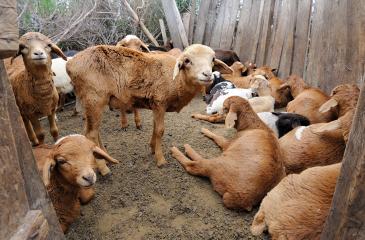By caring for animals, we also take care of people.
Nowhere has this been as clear as in this pandemic, when our pets are an important source of comfort for many of us. Pets get us out to exercise, provide companionship, lower stress, and are dependent on us. Many people are more proactive about seeking health care for their animals than they would be for themselves.
So it is problematic that the barriers for accessing care (both human and animal)—distance, lack of transportation, cost, and mistrust of health systems—can result in a lack of preventative care and delay in treating illness.
The College of Veterinary Medicine has two remarkable outreach programs that help remove these barriers by providing low-income and Native American communities with pet care. These mobile health initiatives, Veterinary Treatment Outreach for Urban Community Health (VeTouch) and Student Initiative for Reservation Veterinary Services (SIRVS), are student- and faculty-run programs. By developing relationships with the communities they serve, they create bridges that bring the expertise and resources of the University to people and animals that need it.
Today’s video features Dr. George Ormondi discussing the complex and inextricable links between animal and human health through factors like disease transmission, mental health, and the food chain. Keeping animals healthy has a direct impact on public health.
Under the excellent leadership of Interim Dean Laura Molgaard, and with the contributions of many faculty, staff and students, the College of Veterinary Medicine not only looks after the health of animals, but takes into account their unique and complicated relationships with humans. This gives all of us the opportunity to explore interprofessional health care, education, and research in the context of their knowledge and experience.
Thank you,
Jakub Tolar, MD, PhD
Vice President for Clinical Affairs
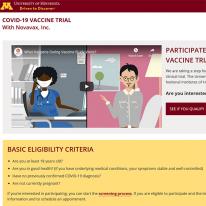
COVID-19 Vaccine Trial
The University recently launched recruitment for a new trial of a Novavax COVID-19 vaccine. The University is working with Novavax, Inc. and the National Institutes of Health on a Phase 3 vaccine clinical trial. You can find the enrollment site here.
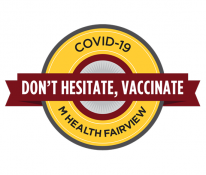
Volunteers Needed to Help Distribute COVID-19 Vaccine
M Health Fairview is seeking volunteers to help with COVID-19 vaccination efforts. A medical background is preferred, but not required. Eligible volunteers may be asked to assist with registration and documentation at vaccination sites, serve as a vaccine safety observer, or – if you meet medical criteria – give out the vaccine. Learn more and register.
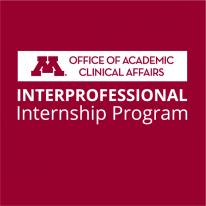
OACA Interprofessional Internship Program
OACA is excited to announce our inaugural cohort of students in the Interprofessional Internship Program. Fifteen students from across the health sciences have been accepted and matched with core projects with clinical and community partners in Minnesota. The goal of the program is to provide students with an opportunity to engage other health professionals in shared problem solving during the course of the projects and apply leadership practices that support equitable/effective interprofessional collaboration. Interns will engage in a monthly professional development series and benefit from networking and mentorship opportunities.

Thank you, Minnesota
“Thanks to a multi-year investment in our biomedical research facilities, we had the ability to meet the need for expanded testing on behalf of Minnesota. In less than a week, we transformed more than 20,000 square feet of research labs into a COVID-19 clinical testing operation in March. By the end of 2020, we completed a million diagnostic tests on behalf of Minnesotans.” Read more from VP Jakub Tolar’s op-ed in the St. Cloud Times.

New Leadership for the U’s Mobile Health Endeavors
Opeyemi (Opy) Adesida’s interest in mobile health stems back to her time spent as a physician in Nigeria, where she worked with state free health missions on mobile pop-up clinics and events focused on providing preventive care and screening to vulnerable populations. After earning her master’s in public health from the University of Minnesota and working in local city and county health departments, Adesida recently joined the University to oversee the operations and delivery of mobile health care services for the Community-University Health Care Center and the University’s mobile health initiative, UMN HELPS (Health Equity through Local Partnerships and Service).
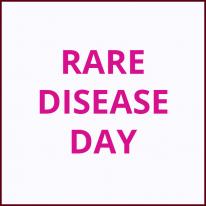
Registration Now Open for Rare Disease Day
The College of Pharmacy and the Medical School will jointly host a virtual Rare Disease Day conference on Friday, Feb. 26. This year's event will focus on "Telehealth in Rare Disease Clinical Practice and Research: The Silver Lining Now and Beyond COVID-19" with keynotes from Dr. Susan Berry, professor of pediatrics, and Bobby Patrick, vice president of strategic growth and policy at the Medical Alley Association.
